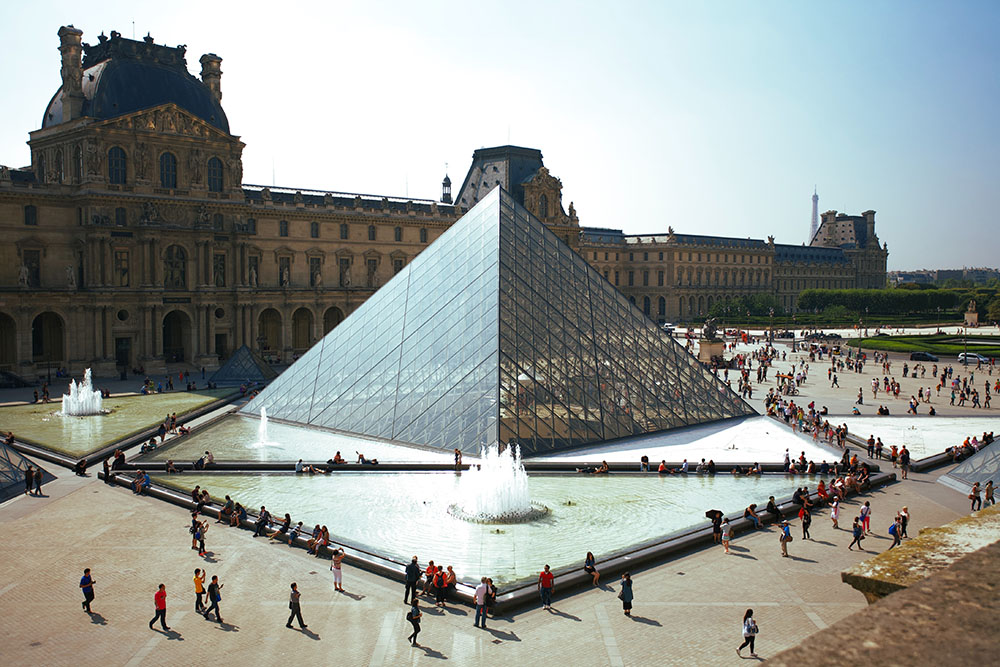Trend forecasting, surprisingly, is a practice that has been around for at least half a century. It started in the late 1960s during the rise of the ready-to-wear industry in France, when designers and fabric makers were looking to predict the next trend in fashion.
These days, clues pointing to the next big thing (not just in fashion, but any other industry) are easily found on the Internet, but the deluge of information online can be overwhelming for some. This is where the insights, wisdom, and experience of people like Cecile Poignant come in handy.
Poignant, founder and editor of online curator Trend Tablet, is a modern anthropologist who wades through the noise of society to find the signals that could dictate the next big lifestyle trend of tomorrow. “I connect the dots and try to see patterns that you don’t usually notice at first glance,” she explains. “I look at everything—consumer behaviors, industry shifts, current events, the media, music, movies, art. Even what my friends like or don’t like, choose or not choose to eat, drink, buy in their daily lives.”
Tech talk
Technology has changed the way we live and businesses have to keep up and provide support for the consumers’ new digital behaviors. “These days, our gadgets are the first and last things we interact with when we wake up and before we go to sleep at night. The internet and technology are considered basic needs now.” She reiterates the importance of keeping up with digital trends, especially in the travel and hospitality industry. “For example, people do everything from their phones and computers so for hotel suppliers, it’s silly not to provide something as basic as a free Wi-Fi connection to their visitors.”
“Today’s generation don’t want to own anything. They just want access. Access to music, movies, experiences, a certain way of living. This is why industry disruptors like video and music streaming services, home rentals, and ride-sharing facilities have been on the rise,” says Cecile Poignant.
Conscious consumers
“People who buy products and avail of services aren’t just there to simply shell out money,” Poignant says. “Consumers also see themselves as citizens of the world.” The digital age has increased awareness on global issues among consumers, and has made them more mindful of the lasting impact their purchases have on the community.
“Sustainability should be at the heart of every project that businesses take on. Sustainability in design, architecture, food, energy consumption—in everything.” Consumers appreciate and understand the need for green initiatives and see them as important factors when choosing a service or product.

Real deal
According to Poignant, today’s generation is more intent on seeking out new experiences, as opposed to acquiring things. “They don’t want to own anything. They just want access. Access to music, movies, experiences, a certain way of living,” she elaborates. “This is why industry disruptors like video and music streaming services, home rentals, and ride-sharing facilities have been on the rise.”
This is also why the travel industry is booming. People don’t want to be sold hotel rooms. Their choice for lodging largely depends on the experience a place offers. Travel means new cuisines they can discover, activities to try out for the first time, walking tours with locals, and volunteering opportunities in the community. “People are looking for meaning and authenticity. They don’t want to be a credit card number to you. They want face-to-face, sincere interactions.”
“There is monotony in globalism. Everywhere you go, it’s the same décor, same food. If things are the same, what’s the point in traveling?”
Local over global
“There is monotony in globalism. Everywhere you go, it’s the same décor, same food. If things are the same, what’s the point in traveling?” Establishments that reflect the culture and way of living in a certain area hold more charm and appeal for the modern-day traveler. “For example, hotels these days are organizing events that will attract both locals and travelers. They hold workshops, classes, parties, and even set up co-working spaces in their premises to give both groups a chance to meet and interact.
“As for products, consumers are entranced by the ideas of doers and makers.” Products that are made by hand—those that showcase the unique materials and skills of a certain community—hold more value. These are usually one-of-a-kind, giving them more meaning.”
Redefined luxury
Poignant predicts that the way we see luxury is going to change. “Luxury used to mean loud, extravagant expressions of wealth. But our concept of luxury is subtler and more mature now.” Industrial luxury and items produced in bulk, however shiny, are taking a backseat to those that are born from the craftsmanship and creativity of the doers and makers.
The fascination with unique, handcrafted items comes into play again here. “Things made with love and passion. Things made in a slow way is a luxury. If there is one thing that is more precious now, it’s time.” That’s why things that take longer and more care and attention to finish are more valuable.
Originally published in F&B Report Vol. 14 No. 6





